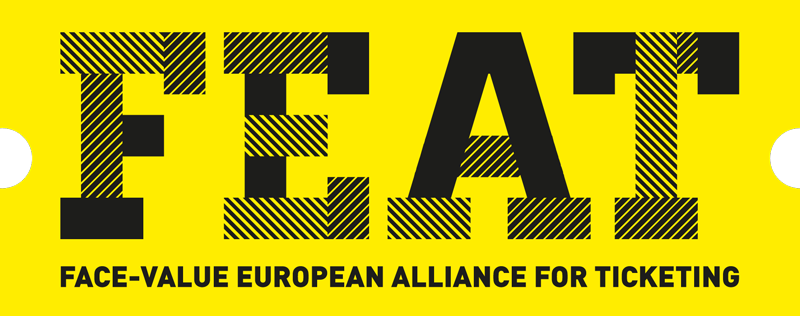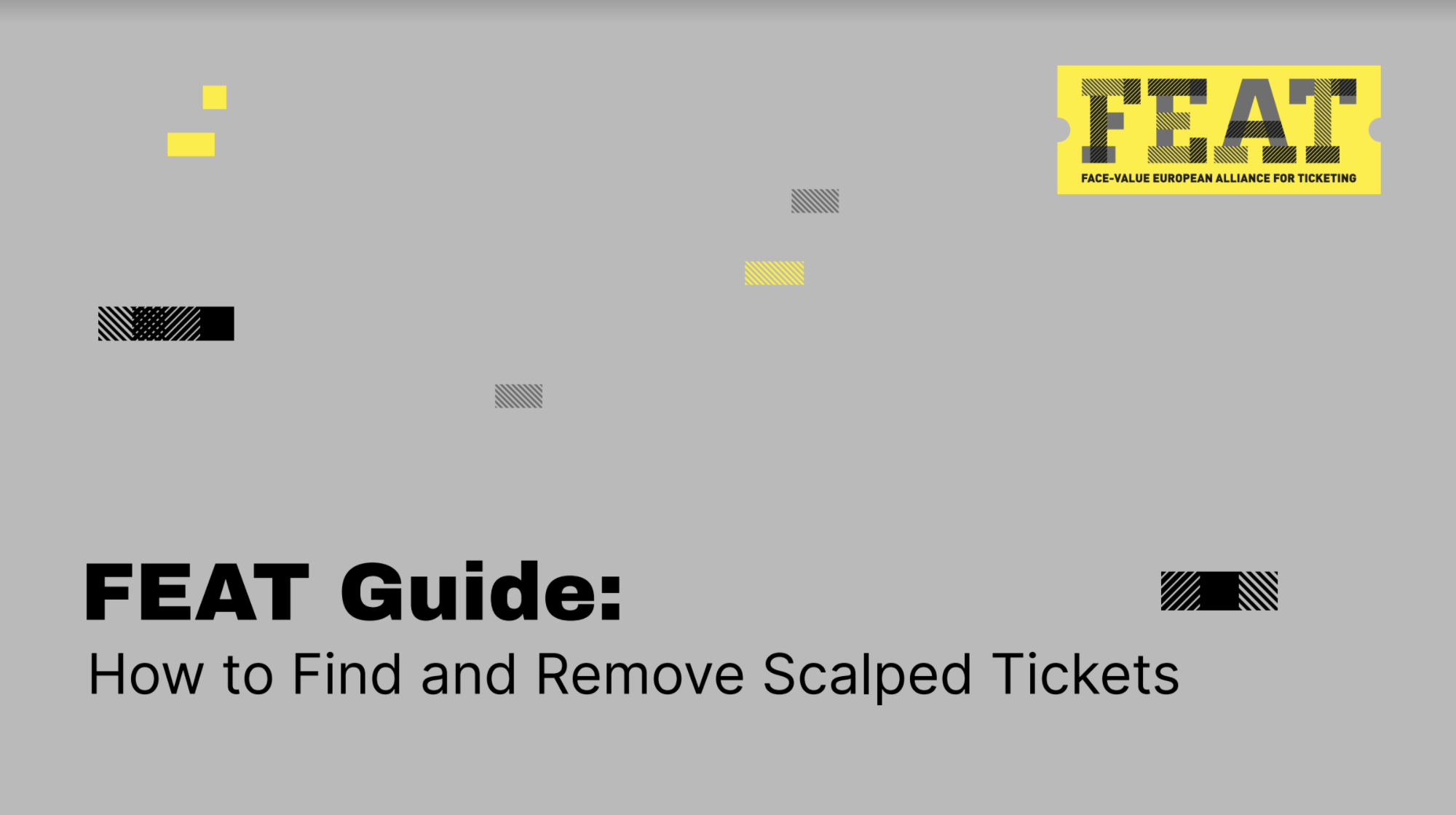Launched today at ESNS, FEAT is proud to present its latest guide for FEAT members and European promoters on how to deal with suspected touted tickets.
From set-up to post-show, “FEAT Guide: How to Find and Remove Scalped Tickets” provides simple step-by-step advice on how promoters can prevent tickets ending up in the wrong hands, while providing clear support to fans. Hoping to demystify the process of tackling touting, the guide outlines how to develop and implement an anti-tout policy, guide fans during on-sale, and spot signs of touting. It also advises on the best route to cancelling tickets in a fan-friendly way, while taking into account the relevant legal considerations. Added extras include template terms and conditions, as well as a template letter to send to any venues involved.
The live music industry suffered drastically as a result of the Covid-19 pandemic, with UK live revenues collapsing by up to 90% in 2020, according to UK Music. As concerts resume, reducing touting will help ensure fans regain their trust in ticketing and can afford to see their favourite acts.
Nicole Jacobsen, Managing Director and Co-Owner of tickets.de, said: “I’m really proud to have worked with FEAT on the ‘FEAT Guide: How To Find and Remove Scalped Tickets’. At tickets.de we’ve been working to stop scalping for over ten years, and the guide is just the latest in what is an on-going and dedicated campaign.”
FEAT Director Sam Shemtob added: “With the live business looking to get back on the front foot in 2022, the timing is perfect for promoters to take steps proven to reduce touting. We hope this guide will be beneficial to all those who work in the sector.”
FEAT would like to thank all who contributed to this project, especially Nicole Jacobsen from tickets.de.
The guide is available on request only — and will shortly be launched in French, Spanish and German. Those interested should contact FEAT at support@feat-alliance.org.






